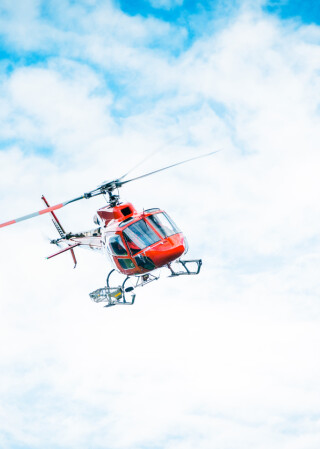A helicopter pilot, who was flying workers between mining sites, and was rendered a quadriplegic when his helicopter crashed after being enveloped in fog, has had his judgment upheld on appeal, with the Supreme Court of Queensland Court of Appeal upholding the primary judge’s finding of negligence against the pilot’s employer.
Background
Hevilift Limited employed Bruce Towers as a helicopter pilot in the Southern Highlands of Papua New Guinea (“PNG”). Mr Towers would ferry workers at a mining site between camps.
On 20 April 2006, Mr Towers’ helicopter crashed on approach to Camp 57, killing three of its six passengers and rendering Mr Towers a quadriplegic. Thick cloud which appeared to develop instantaneously, enveloped the helicopter and obstructed visibility. Mr Towers attempted to fly by visual reference to the treetops but struck a tree. The helicopter was certified only for visual flight and did not have an altitude indicator. The rapid cloud formation is a meteorological phenomenon, more prevalent in this mountainous region than anywhere else in the world.
Initial proceedings
Mr Towers commenced proceedings in the Supreme Court of Queensland against Hevilift, in negligence and claimed damages. Although Mr Towers was warned of some fog at Camp 57, he was unaware of the prevalence of rapid cloud formation in that particular area.
The primary judge found that Mr Towers did not deliberately fly into fog; rather the fog suddenly and unexpectedly enveloped the helicopter. Hevilift’s failure to warn Mr Towers of the risk of very rapid cloud formation caused the crash and Mr Towers’s injury.
On appeal
Hevilift appealed the primary judge’s findings.
The court found that the fact that Mr Towers was warned of some fog at Camp 57, is not a sufficient substitute for Hevilift’s failure to implement a local regime for monitoring weather. Hevilift failed to specifically inform Mr Towers that Camp 57 was closed due to fog, to prohibit the flight and to divert Mr Towers to safety.
Further, the information relayed to Mr Towers, that there was fog at Camp 57, failed to prohibit Mr Towers from proceeding. It was that failure, as well as Hevilift’s failure to warn of rapid-forming fog in the area, which caused the crash.
Accordingly, the court dismissed Hevilift’s appeal: Hevilift Limited v Bruce Towers [2018] QCA 89.
For more information on the above contact Joe Bonura on (02) 4626 5077 or jbonura@marsdens.net.au.
This article first appeared in the CCH Australian Tort, Personal Injury, Health and Medical Law Tracker and is reproduced in full with permission from CCH, a division of Wolters Kluwer Australia: www.wolterskluwer.cch.com.au
The contents of this publication are for reference purposes only. This publication does not constitute legal advice and should not be relied upon as legal advice. Specific legal advice should always be sought separately before taking any action based on this publication


